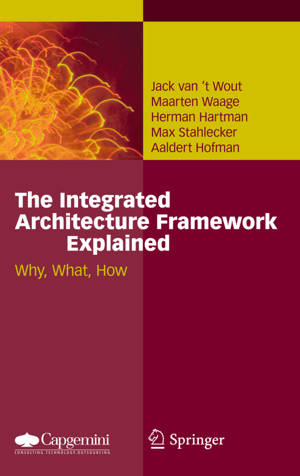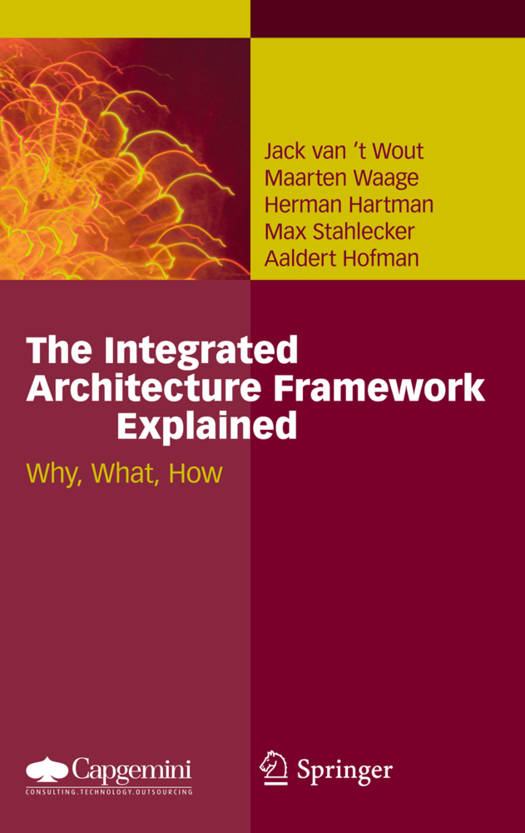
- Afhalen na 1 uur in een winkel met voorraad
- Gratis thuislevering in België vanaf € 30
- Ruim aanbod met 7 miljoen producten
- Afhalen na 1 uur in een winkel met voorraad
- Gratis thuislevering in België vanaf € 30
- Ruim aanbod met 7 miljoen producten
Zoeken
The Integrated Architecture Framework Explained
Why, What, How
Jack Van't Wout, Maarten Waage, Herman Hartman, Max Stahlecker, Aaldert Hofman
Paperback | Engels
€ 49,95
+ 99 punten
Uitvoering
Omschrijving
When I joined Capgemini back in 1996 I was amazed by investment that had been made in developing Enterprise Architecture, and at the root of this, the IAF methodology. Back in the mid 1990s the importance of architecture was dimly recognised but certainly it was not widely understood as a crucial element of successful enterprise wide IT implementation. A decade later with the huge growth in the role, the sophistication, and importance of Information Technology it has become recognized, and established for the value it brings. With this recognition has come various forms of 'standardization' ranging from the work of the Open Group and its moves to establish TOGAF as a common framework, together with ITAC to certify architects, through to a wide variety of product vendor architects, even to some industry sectors establishing their own architectures. Has this diminished, or even may be removed the need for IAF? Well it might have done if the world had stood still, but it hasn't. Simul- neously the range and complexity of technology has increased, the functionality has been extended to embrace new front office capabilities and most of all the externalization and globalization of business has added a whole new extra dimension. Standardization might have improved connections and interfaces, and in so doing produced 'systems' of apparently limitless extendibility, but it has done little to improve the necessary 'understanding'.
Specificaties
Betrokkenen
- Auteur(s):
- Uitgeverij:
Inhoud
- Aantal bladzijden:
- 246
- Taal:
- Engels
Eigenschappen
- Productcode (EAN):
- 9783662506073
- Verschijningsdatum:
- 23/08/2016
- Uitvoering:
- Paperback
- Formaat:
- Trade paperback (VS)
- Afmetingen:
- 155 mm x 235 mm
- Gewicht:
- 550 g

Alleen bij Standaard Boekhandel
+ 99 punten op je klantenkaart van Standaard Boekhandel
Beoordelingen
We publiceren alleen reviews die voldoen aan de voorwaarden voor reviews. Bekijk onze voorwaarden voor reviews.











